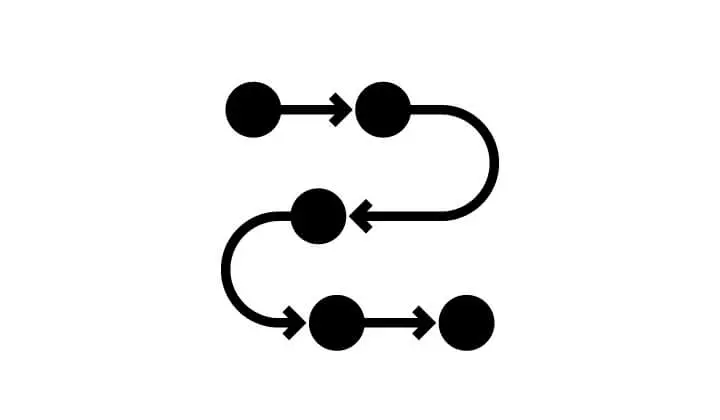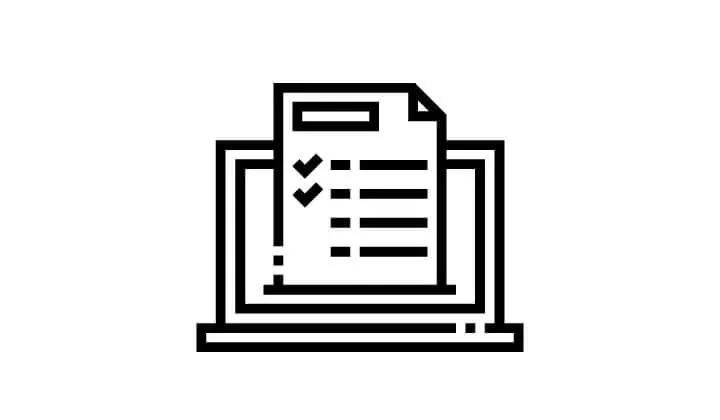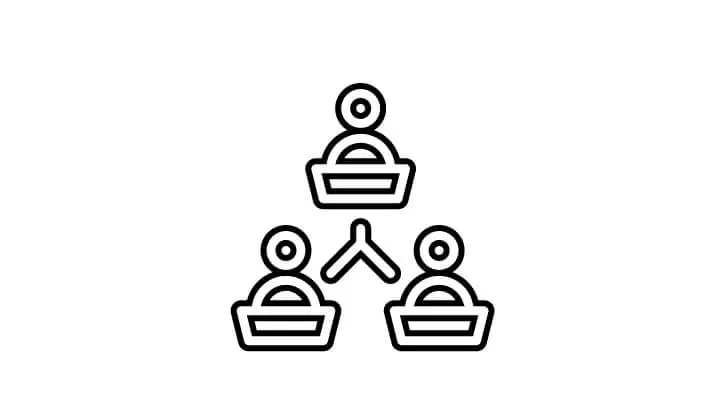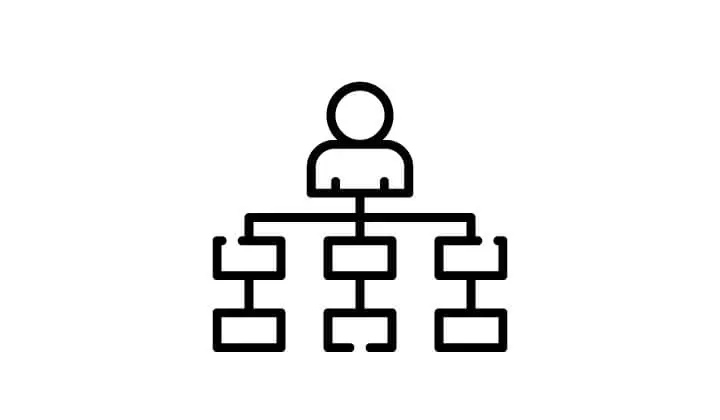Steering Complex Projects
Why enrol in the Steering Complex Projects programme?
'Meet the objective' is the obvious goal for any project—but the objective is not always ROI. When the aim is organisational change, learning outcomes or culture change, a different approach may be needed. This programme can help you gain the expertise to take on more complex and novel projects while successfully connecting the dots between your strategic goals and your project goals. You’ll learn project management processes along with ways to build organisational capability to ensure that not only are your projects completed, but also that your outcomes are predictable.
Who is this programme for?
This programme is focused on the “why” and “how” of managing complex projects, and provides essential best practices regarding their successful completion as well as delivering value for stakeholders. The programme is ideal for:
C-suite and senior-level executives seeking an overview of project management as well as insights on choosing the most appropriate project approach based on their strategic objective.
Highly experienced PMP-certified project managers looking to go deeper than traditional PMP courses and develop their leadership skills in project management.
Consultants who need the skill to articulate the case for projects and influence multiple stakeholders.
The programme’s lessons are applicable across most major industries, including banking and finance, consulting, government, infrastructure, professional services, real estate, technology and telecom.
What you will learn
Throughout this eight-week programme, you’ll learn to select the best approach for your projects to ensure they meet your strategic objectives and deliver value for your stakeholders.
For more information on the syllabus, download the brochure.
Programme highlights

Translate high-level strategic goals into project goals.
Identify the key characteristics of different types of projects, and articulate the appropriate management and personnel systems for each.
Anticipate project uncertainties and take mitigating or responsive actions.
Build a framework for managing governance structures with accountability measures.
Develop effective practices in relationship management and exercising influence.
Apply established methods of knowledge exchange and learning tools in a way that is appropriate to the challenges of a project.
Faculty

Professor of Operations and Technology Management
Before coming to CJBS in 2011, Professor Loch was the GlaxoSmithKline Chaired Professor of Corporate Innovation at INSEAD, where he also served as Dean of the PhD programme an...

Professor of Operations Management, MBA, PhD (Case Western University)
Dr Sengupta has served as adviser on several projects with the U.S. Government Department of Defense as well as NASA, besides consulting with organisations in Silicon Valley a...
Testimonials







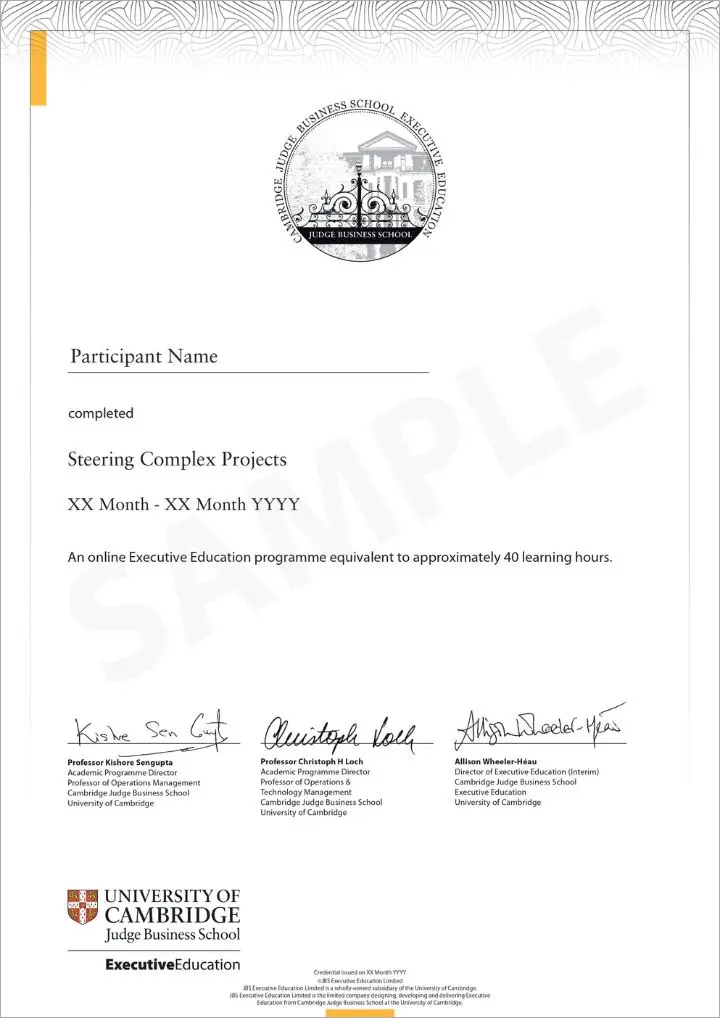
Certificate
Upon successful completion of the programme, participants will be awarded a digital certificate of completion by Cambridge Judge Business School Executive Education.
Please note that this programme can be incorporated into the completion of the Cambridge General Management Certificate of Achievement (GMCA). It will be credited as an 'in-person' two-day programme for the purpose of meeting the GMCA requirements. If you require more details on the GMCA and wish to speak to our advisers, please contact executive.education@jbs.cam.ac.uk.
Note: After successful completion of the online programme, your verified digital certificate will be emailed to you in the name you used when registering for the programme. All certificate images are for illustrative purposes only and may be subject to change at the discretion of Cambridge Judge Business School Executive Education.
FAQs
Didn't find what you were looking for? Write to us at learner.success@emeritus.org or Schedule a call with one of our Programme Advisers or call us at +44 203 479 4043 (UK) / +1 315 819 0707(US) / +65 3163 8580 (SG)
Early registrations are encouraged. Seats fill up quickly!
Flexible payment options available.
Starts On


